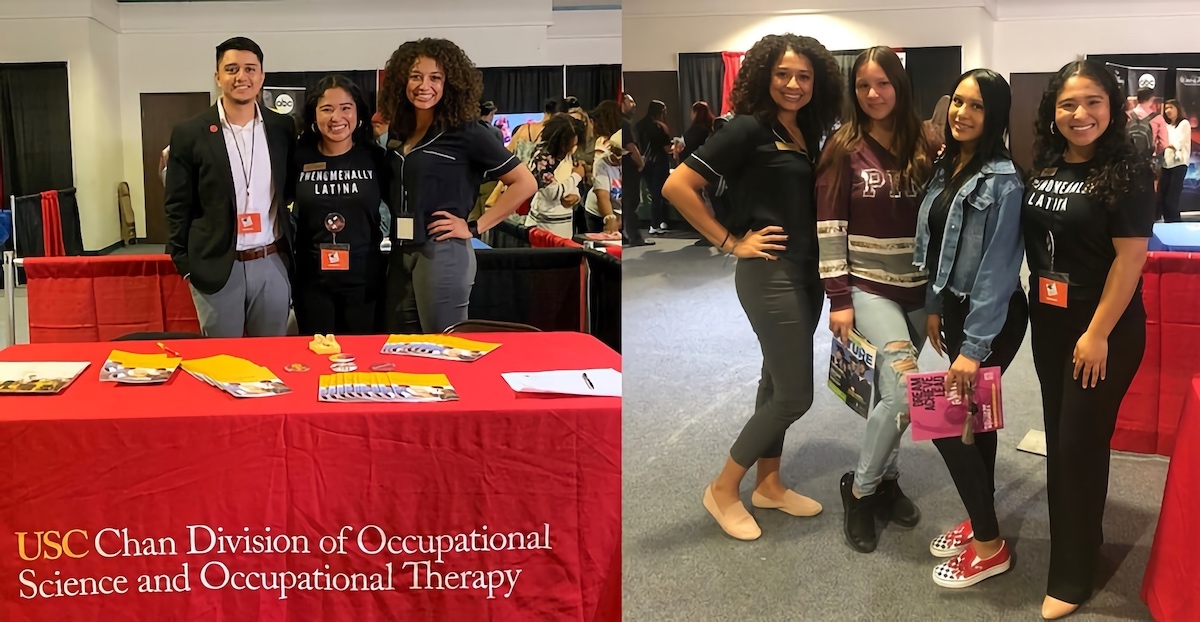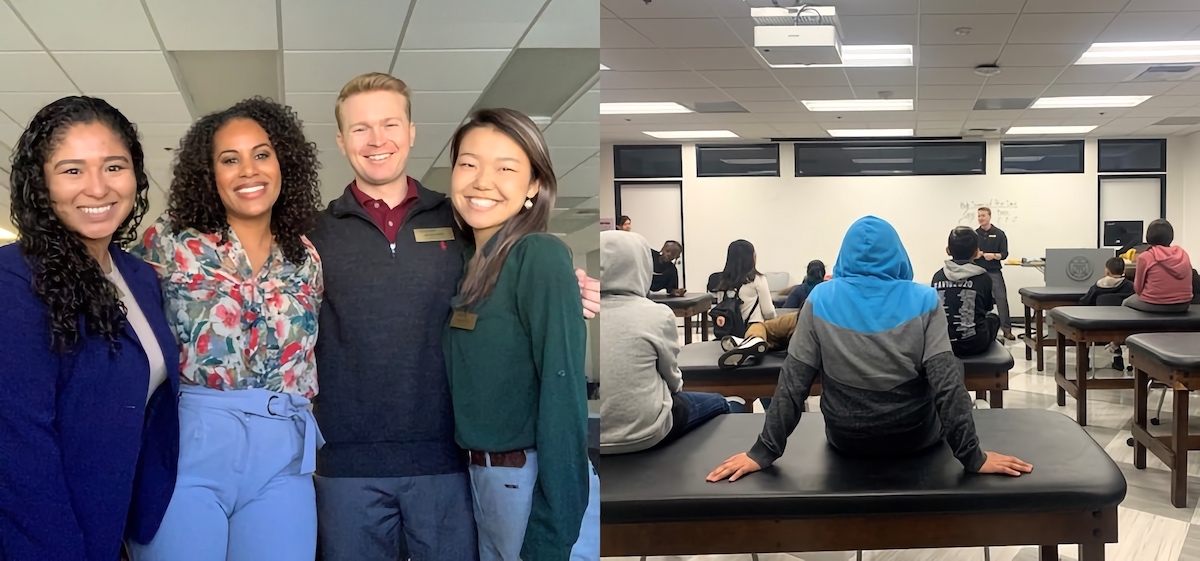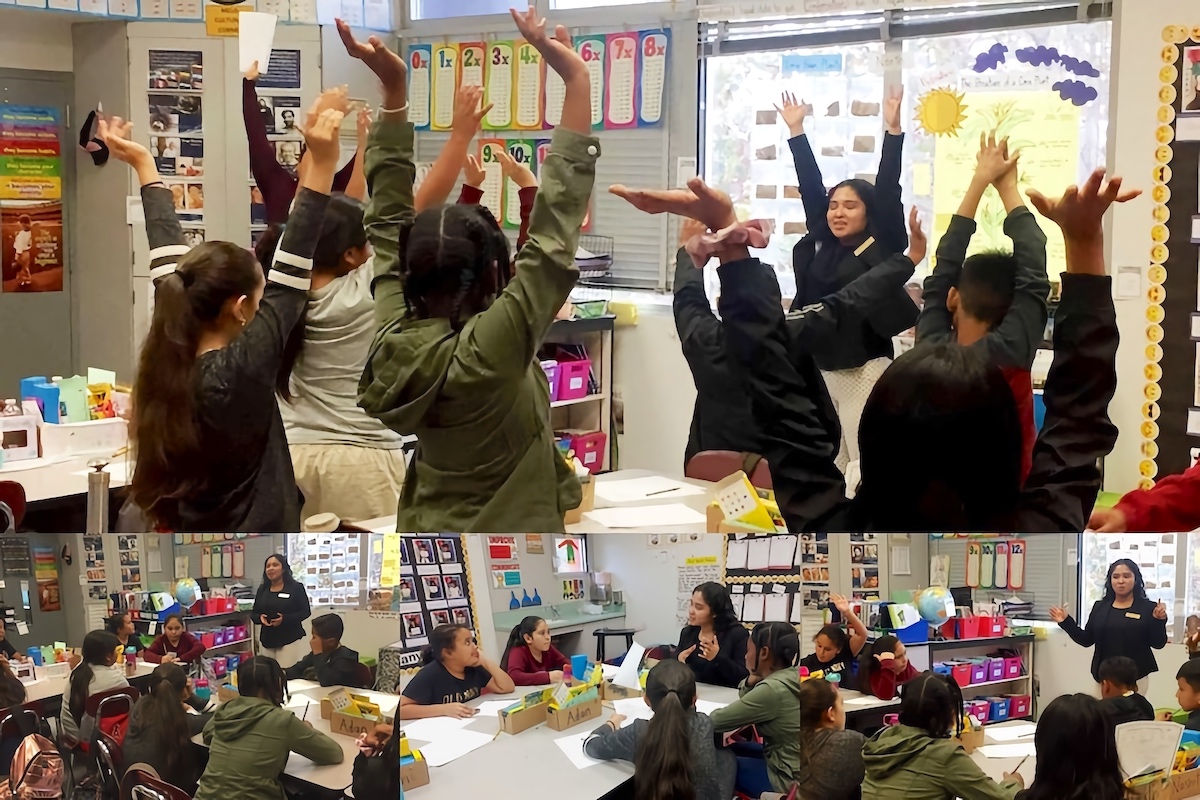Student Blog
Marilyn
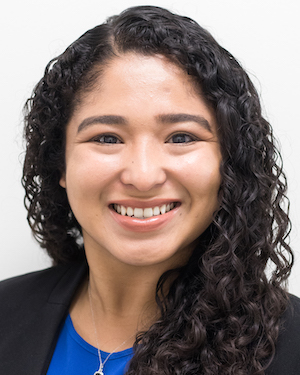
Becoming part of the 4.2% ⟩
December 12, 2019, by Marilyn
According to the 2018 U.S. Department of Labor — Labor Force Statistics there are 116,000 employed Occupational therapist (OT) in the nation. Of those employed in the U.S. the demographic percentage breakdown by ethnicity is 91.1% White, 6.4% Asian, 4.2% Hispanic or Latino, and 2.5% Black or African American. As a Latinx occupational therapy master’s student who was recently admitted into the Doctorate of Occupational Therapy at USC, I am looking forward to becoming part of the 4.2% in the near future.
As a student ambassador for the division, I have been able to work with the admissions and ambassador team on diversity related events, in hopes of increasing awareness about this healthcare profession. Throughout the semester, I tabled at conferences, presented at middle schools, and met with leaders in the division who are passionate about diversifying the profession. These opportunities coupled with my zeal for changing the current statistics on sociocultural diversity in the profession, make me excited to highlight a couple of those events.
Latino College Expo @ Pomona
Annual event where Latinx students, parents, guardians, and admissions representatives from public or private colleges, universities, and community based organizations are able to forge partnerships. This year Daniel Padilla (2nd year Master’s student), Kat Hylton (2nd Year Master’s student and Student Ambassador), and I were able to table at the event.
Washington STEAM Multilingual Academy @ USC (OT Visit on Campus)
Dr. Arameh Anvarizadeh (Director of Admissions for the Chan Division) and the ambassador team were able to provide 50 middle school students from Washington STEAM the opportunity to learn about OT right in our classroom!
Press Friends Newspaper @ John W. Mack Elementary School
I was introduced to USC Press Friends by the previous student ambassador Jessica Pederson. I presented to the school newspaper journalist about what led me to choose OT as a career path and supported them with writing an article about OT.
These specific events remind me of the questions I find myself pondering on:
- What can I do as a student in the division to make a shift in the demographic percentages of students applying to the Master’s program?
- How can students in the program support one another with forging relationships that are long lasting?
- Who do I need to collaborate with to really be able to understand how to make a shift in the current statistics on sociocultural diversity in the profession?
Accepting my Doctoral program admissions offer is my first step in answering these questions. Being a future healthcare provider with an OT lens makes me excited, especially when there are limited professionals who represent a broad range of experiences, backgrounds, and perspectives. I am certain that with continued mentorship, I will be able to further understand barriers impacting students of diverse backgrounds from applying and ultimately choosing OT. Concurrently, I will be better equipped to deliver culturally sensitive OT services by learning about my client’s sociocultural backgrounds and supporting them with achieving their goals.
⋯

Don’t say yes, if you want to say no! ⟩
October 4, 2019, by Marilyn
Humans are innate social beings that thrive on reciprocity. Our internal nature often leads us to people pleasing, in order to not disrupt a potential bond professionally and personally. When we make the decision to provide a quick yes, instead of the difficult no we overcommit. Overcommitting often leads to a decrease in energy, time, overall health, and sometimes finances, so it is important to really evaluate the weight of the yes.
The need to please others comes from the feeling of “I want to make everyone happy and I want to make sure that everything is okay.” However, sometimes making others happy leads to one’s own unhappiness. The recognition of my own people pleasing tendencies and lack of saying no were revealed to me during my first semester of grad school. I began to take on colleagues work shifts, was engaging in late night roommate conflict mediations, supporting residents during moments of crisis and providing them with referrals, driving home every other weekend, studying late hours, working hard at my fieldwork placement and the list can go on. All to say, I ended up getting sick for a week. My body was telling me that I needed to slow down and take a breather. As I was lying in bed trying to pinpoint when I began to feel sick, what came to mind was the different times I was saying yes to others and inadvertently saying no to me (spiritually, mentally, physically, and emotionally).
This week, I had conversations with mentors about the two lettered word: N-O. I wanted to learn about the strategies they developed over the years professionally and personally, in order to share it with you!
1. Opportunity Cost
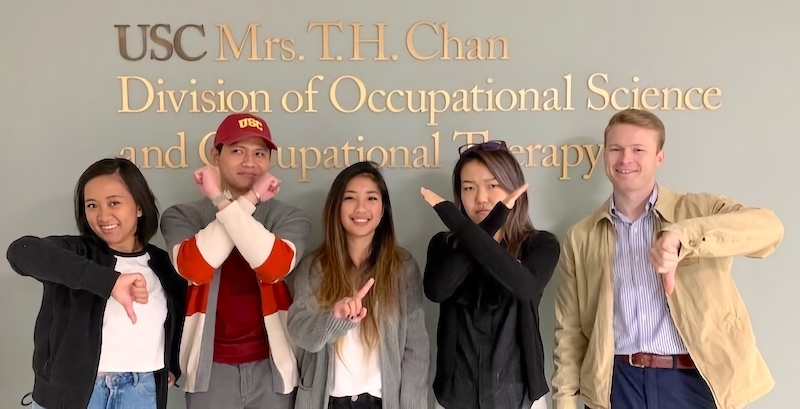
MA-I students (Macy Peralta, Mike Pacifico, and Japeth and MA-II students (Kaho Ishizuki and Kevin Urhik) expressing visually how they say no internally.
When making decisions there typically is an opportunity cost. Will I go to the movies this evening versus spending that time at home completing school tasks? Will staying up till 3am to study be effective or should I get some more time for sleep? Should I apply to this educational program when I need to make ends meet at home financially? These questions become overwhelming overtime, so it is important to be able to evaluate the opportunity cost. In the end it is important to understand that opportunities will continue to arise regardless of the one no you decided to say. Being able to weigh the pros and cons can provide you with clarity to move forward with one semi-solid decision, even when the unknown outcome seems daunting.
2. Be Intentional
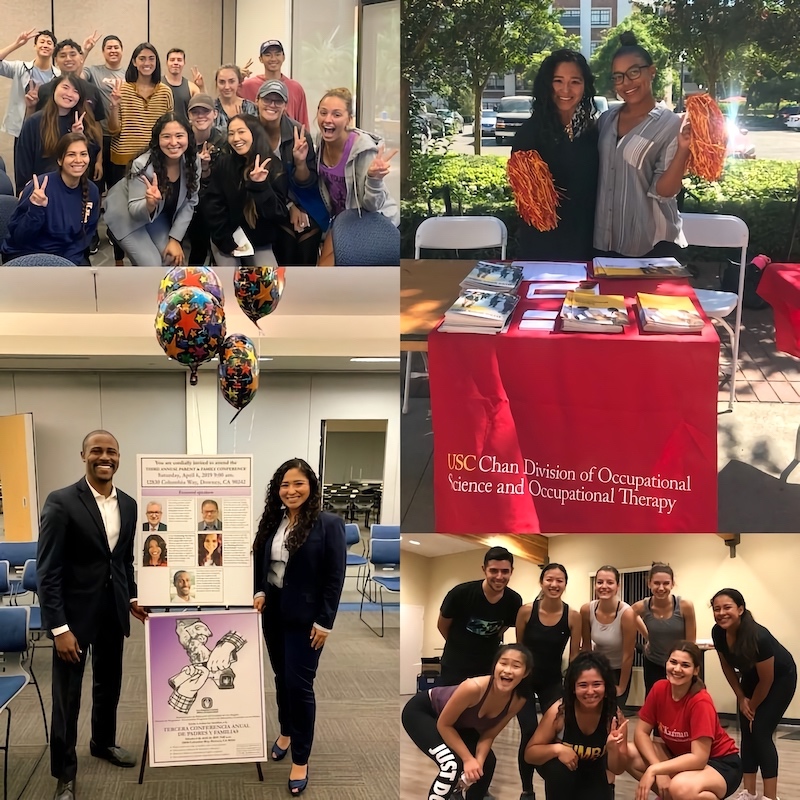
Top Left: CSUF Kinesiology Student Association presentation Bottom Left: Twinspire Non-profit organization presentation for parents and families Top Right: Student Ambassadors tabling at the Black and Latinx Symposium Bottom Right: Former housing residents and I after the zumba class I instructed
There is a difference in saying no just because you don’t feel like it versus being intentional and strategic about your motives. This strategy is one that I find that helps me out the most when determining my intentions behind saying yes or no to an opportunity. Depending on the urgency in response time provided to me, I try to give myself at least 24hrs before I say yes or no. By giving myself time to process my answer, I can begin to evaluate if it is manageable to say yes. Choosing to invest most into the things that I am passionate about and being intentional with not overcommitting myself will help both parties involved.
3. Being Transparent
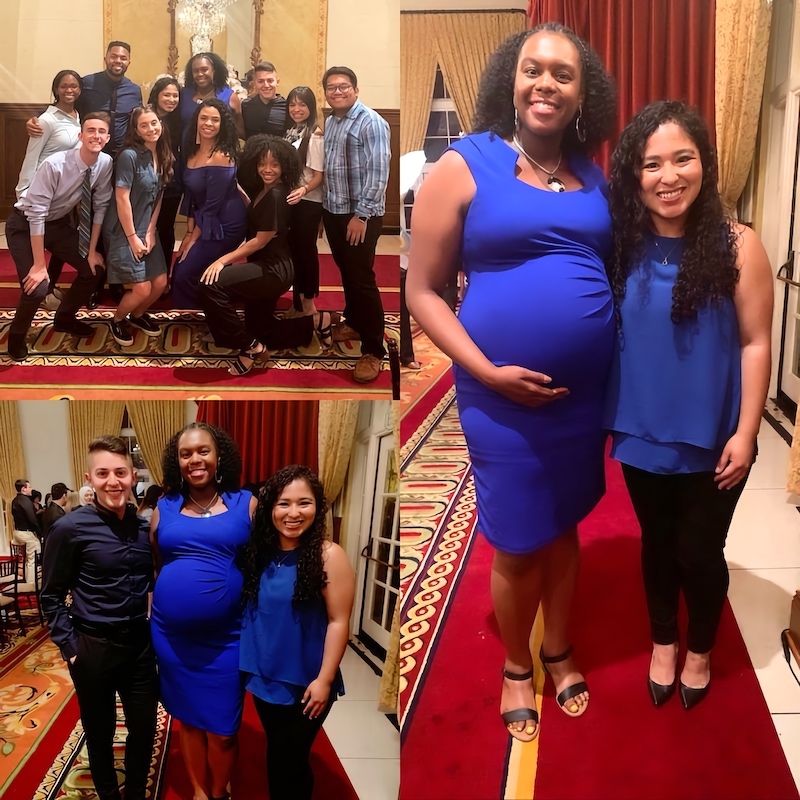
Residential Education End of Year Banquet. Top Left: Graduate & Family Housing East staff Bottom Left: Residential Community Coordinator Jasmine King and former Graduate Residential Community Coordinator JC Berber Right: Jasmine King (Queen of professional development/supervisor)
Honesty is the best policy, even when it regards saying no. I remember being asked if I was reapplying for the RA position in residential housing for my second year of grad school. It was challenging for me to say no because I had learned tremendously from my supervisor both professionally and personally. However, I knew that my second year of grad school would be a busy year with deciding to move back home, being selected as a student ambassador, looking for potential post-grad job opportunities, and beginning to apply to occupational therapy doctoral programs. I decide to be transparent with my supervisor about my workload for my second year and I left the conversation beyond encouraged. She was understanding of the new responsibilities I had taken on and she reminded me that I would be more than fine regardless of the outcome. She taught me about the importance of reframing the no into a yes, “I am unable to take this on because I need to take care of my spiritual, mental, emotional, and physical health.” Many times situations seem worse because you react and frame it as a negative thought, “I am a horrible person for saying no” “I can’t let her down.” In reality, if we just tried being more honest about our thoughts and how we are feeling the reframing would be useful. The reframing of “no I unable to serve in this capacity” is often the YES we need for ourselves to protect our wellbeing.
4. Accepting the “No’s” you will receive

Took a trip to La Jolla Beach in San Diego after receiving some rejections from job offers
Saying no is a two-way street. As we begin to learn how to say no to others, it is equally important to be understanding when someone tells you NO. This past week OTD applications were submitted and interviews will commence soon. As I reflect on my decision to apply to the OTD program, I recognize that I am saying yes “I am ready to start this next chapter professionally”. However, there is a possibility in receiving a no from potential residency sites that I am interested in. That “no” may initially feel as rejection, but in reality it is possible that the no is necessary for a new opportunity to arise. Stepping back and regaining perspective after a no is important. No’s will continue to come whether that be in receiving a no from residency sites, no from future employers, no because it is not the right time yet, or no from someone in your personal life. In the end, it is about accepting the no in a respectful way, not taking it personally, and seeing it as a period of growth.
⋯

Overcoming Imposter Syndrome ⟩
September 20, 2019, by Marilyn
Diversity First-Gen Life Hacks
As a latinx, first-generation graduate student, womxn of color, there are moments of self-doubt that lead me to believe that I am an imposter. Being a double Trojan at USC has allowed me to see a shift in perspective from the transition of undergraduate to graduate student life. During my senior year of undergrad, I learned about Occupational Therapy through an elective course. I immediately was drawn to the field as I began to understand how occupational therapists can redesign the life of an individual, in order to support them with doing the things they want and need to do. My ideal profession of being a medical doctor completely changed as I fell in love with the profession of OT. With this career change, I began to have an inner dialog that impacted my confidence about whether I would be a good OT, whether I would be accepted into a competitive master’s program, and if I was making the right career move. It was evident that my undergraduate peers had been preparing to be an occupational therapist way longer than I did and it definitely took a mental, physical, and emotional toll on me. So with all that being said, let me tell you what helped me overcome imposter syndrome:
Sharing my insecurity with my village
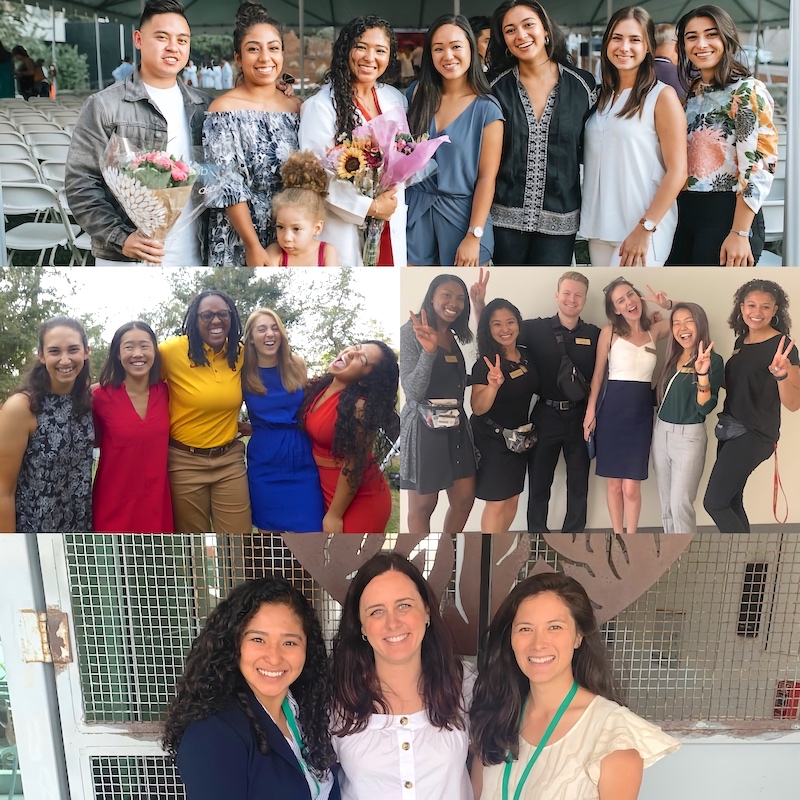
Top: Friends from high school that attended my white coat ceremony. Middle Left: My first group of friends that helped me survive summer. Middle Right: Team of Student Ambassadors who were working the white coat ceremony for incoming students. Bottom: After presenting our case study at St. Joseph’s Center Rachel Kent and I took a photo with our Clinical Instructor Dr. Erin McIntyre.
Vulnerability is not something that comes easy to me, but overtime I’ve learned about the importance of speaking up and sharing what is truly going on in my mind. My awareness of imposter feelings emerged over the summer intensive program, while I began to get connected to peers and understood their educational training. Immediately, the negative self talk of “I am not as prepared” or “Is this really going to be a good summer” or “I am smart enough,” thoughts began to creep in. However, I chose to take a leap of faith and shared with my peers that I was struggling in certain areas. This transparency truly set the stage for our friend group and even though we were divided into different academic cohorts, I know that they played a pivotal role in recognizing my worth as a student in the masters program. Simultaneously, I had the support of high school friends that always seemed to know when I was having moments of self-doubt. My high school friends just knew how to make me laugh and reminded me to find the joy in my failures and feelings of inadequacy. Time and time again, I realize that speaking to my village provides me with reminders of my purpose and why I chose OT. For example, over summer 2019 I had the opportunity to present a case study at my fieldwork site. Dr. McIntyre, Rachel, and I advocated for OT and the need of continued services for the population that was being served. My why became even more clear after that presentation.
Reframing my mindset
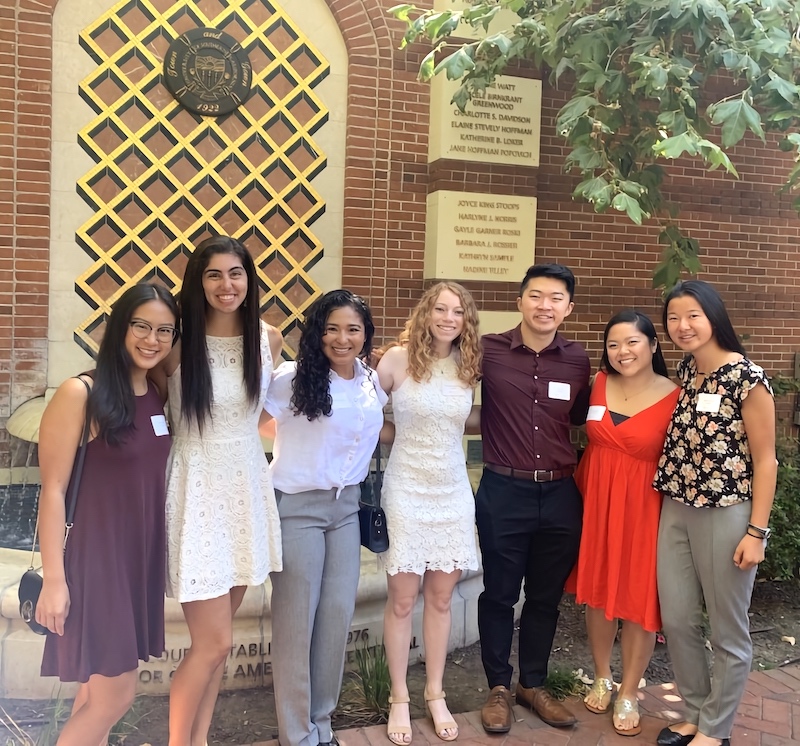
Chan Division students who attended the Town and Gown Scholars Breakfast
Beginning to reprogram my mindset about certain feelings set the stage for healthier growth not only as a student, but also personally and professionally. Here are some statements that I needed to reframe:
- I don’t have all the answers → I don’t need to know all the answers
- I am a failure → Failure is a learning opportunity
- Should I be here? → I need to be here because my community needs me
- I feel useless right now → The fact that I feel useless, does not mean that I am useless
Truthfully, it comes down to being kind about the inner dialog we have as individuals. I am unable to pour from an empty cup, so I need to continue to engage in positive self-talk, while I also lift up my academic community and clients in each setting that have the privilege to be at. We never know what someone is going through, whether that be a professor, classmate, or client, but supporting someone as they reframe their mindset is life giving.
The big picture
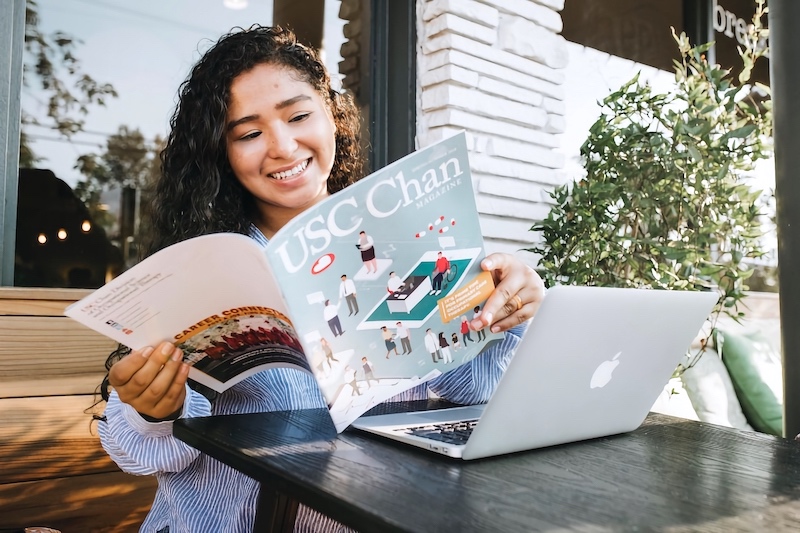
Reading about the innovative work taking place in the Chan Division
There is only one YOU. We each have been cultivating talents that no one else has, so understanding that and truly believing it often is the hardest part. However, when I am studying for long hours of the night and feeling overwhelmed, I find a sticky note or sheet of paper and write 3 reasons why I am grateful to be in this season of life as a student. I am not alone in this journey of self-discovery with OT and neither are you. In the end, I have learned that the impossible is in fact possible if I stay prepared and believe that it can be done. So whether you are a prospective student applying to the bachelors/master’s program, a current student interested in obtaining your OTD or PhD, or just a reader curious about OT, have the courage to pursue your dream and know that the big picture can be possible.
⋯

Hit the ground running! ⟩
September 4, 2019, by Marilyn
Summer is officially over and hello second year of grad school! Whether you are a prospective student or current student in the Division, I hope that you are remaining present as you return to school, work, or are managing everyday life. In order to get prepared for the fall semester, here are 5 tips that helped me hit the ground running.
1. Develop a weekly schedule
This visual weekly schedule provides me with the opportunity to get adjusted to the layout of classes, fieldwork, ambassador work, leisure, and play! I begin to work on this schedule the week prior to classes starting and readjust accordingly during the first week of school.
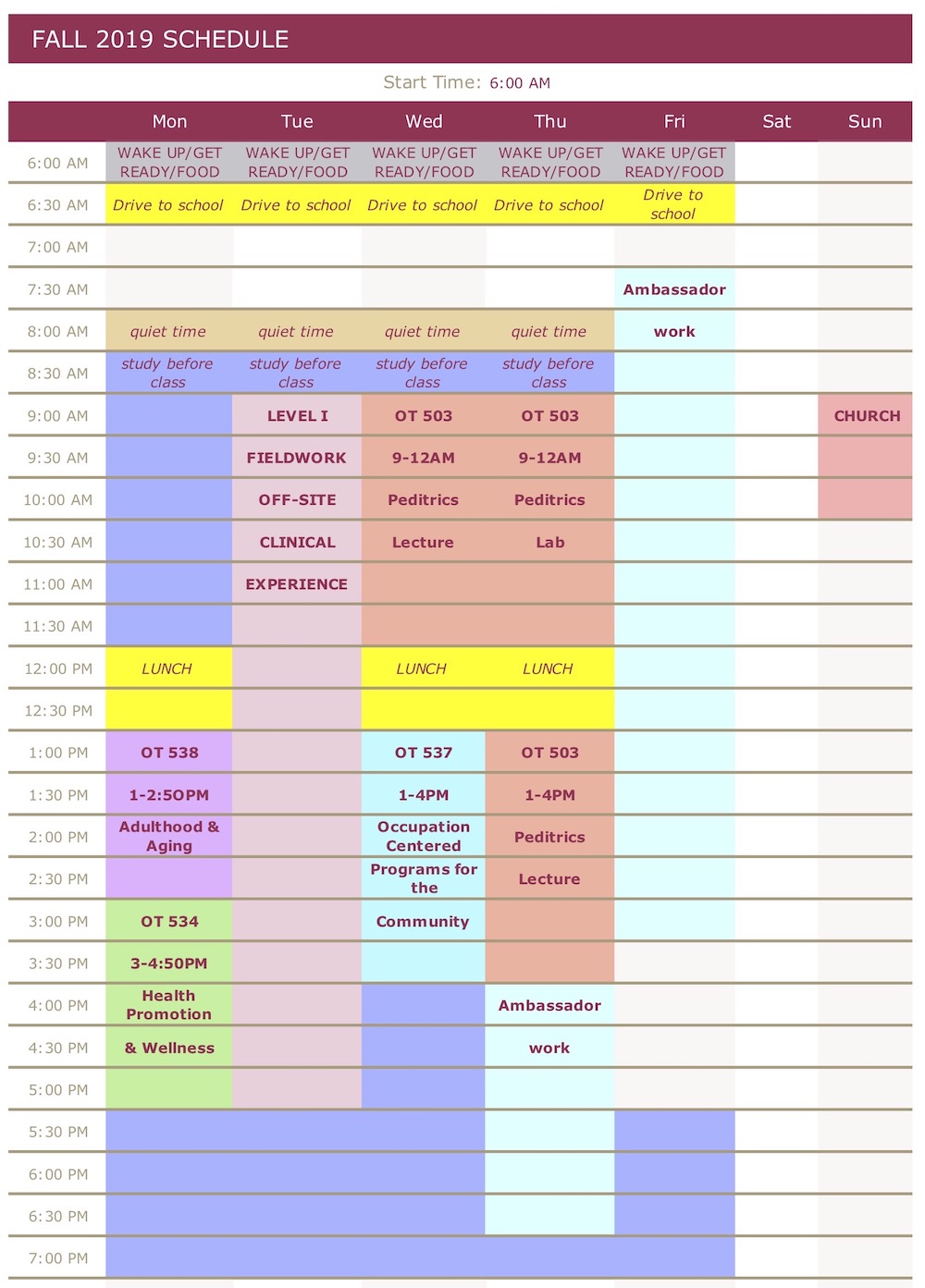
2. Use a planner
I love planners! Being able to have a monthly grid and daily breakdown of weeks, helps me recall important deadlines and keeps me up to date on tasks that need to get completed. I know this sounds very structured, but I have seen other peers use this strategy successfully. As the semester progresses time seems to go by quicker, so forgetting to do a reading, missing an assignment or not submitting a work project can induce some anxiety. Some alternatives to getting a planner are creating a daily to-do list on a sticky note or setting reminders on your phone. Figure out what will be best for you to remain organized during the semester!
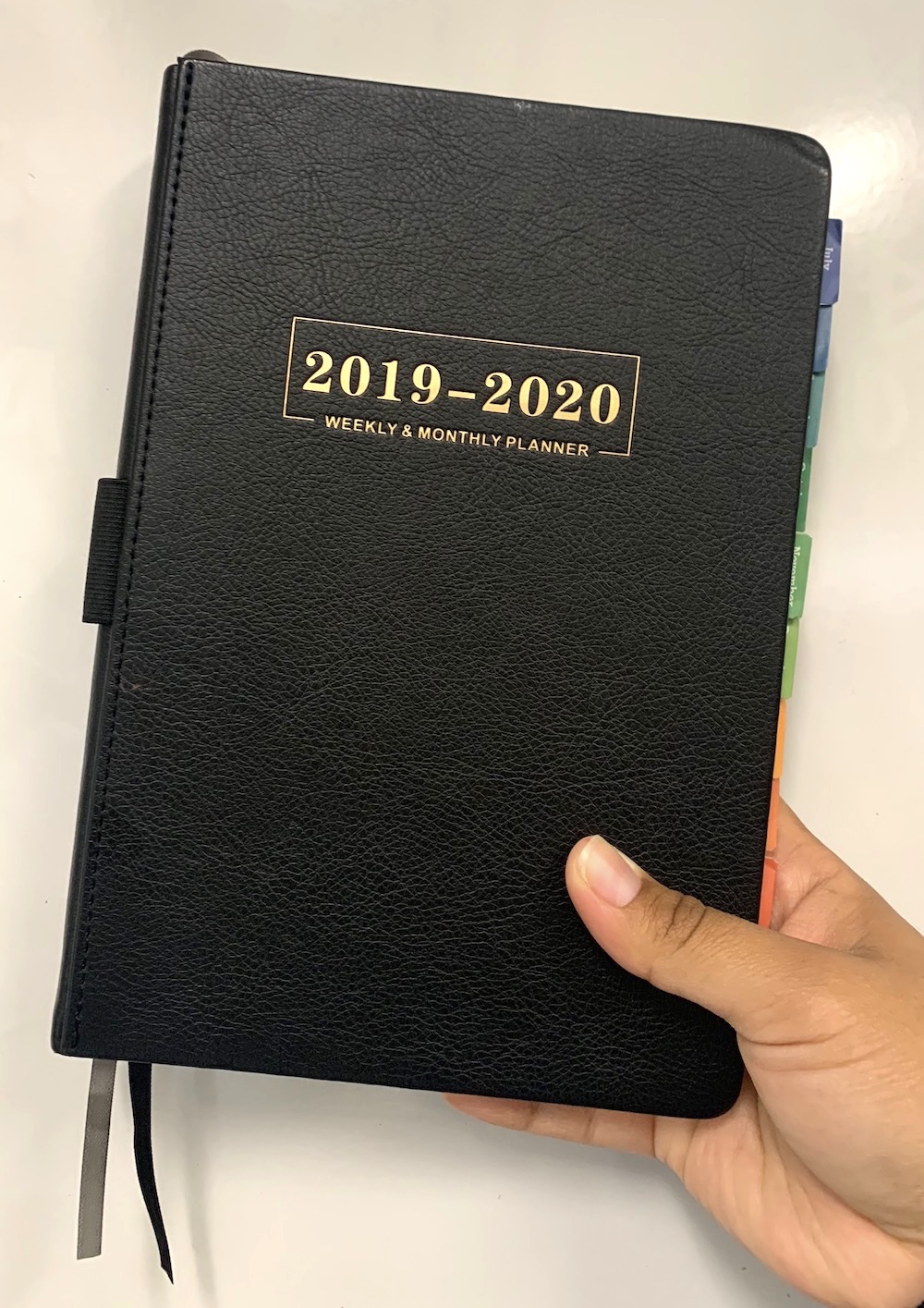
3. Learn to say no
Trying to have a healthy balance in school is critical to my well-being. During my first year in the program, I definitely spread myself thin. I was a graduate housing resident assistant, volunteered in my ministry, encouraged family and friends during important milestones, studied for the adult rehab and mental health immersion, was the maid of honor for my best friend’s wedding, and much more. After the completion of my first year, I realized that in order to be an effective student I could not say yes to everything. I needed to set boundaries with how many times to go out with family and friends, how to devote my time to extracurricular activities, and I needed to determine what my priorities were. It is okay to protect your time and sanity, so you can excel in the program. After all, that is why you are here!
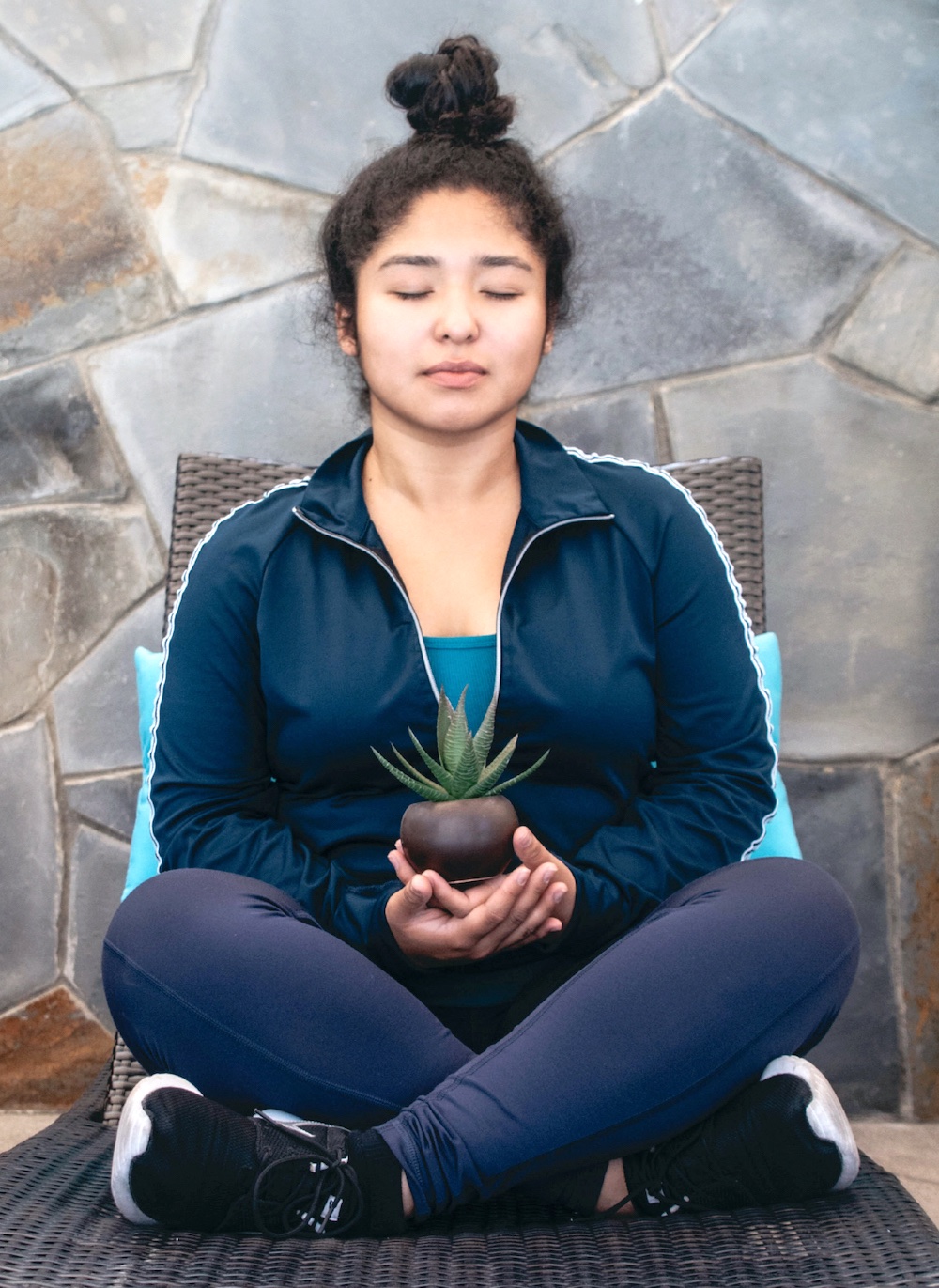
4. Create a conducive environment for studying
Moving back home for my second year, I realized that my environment would be changing and thus it would impact where I would be studying for the semester. I began to trial areas in my home and nearby coffee shops, to determine what environment would support me with remaining focused. I ended up finding a great hole in the wall coffee spot and organized my dining room table as a plan B. Have you considered which environment is conducive to maximize your productivity?
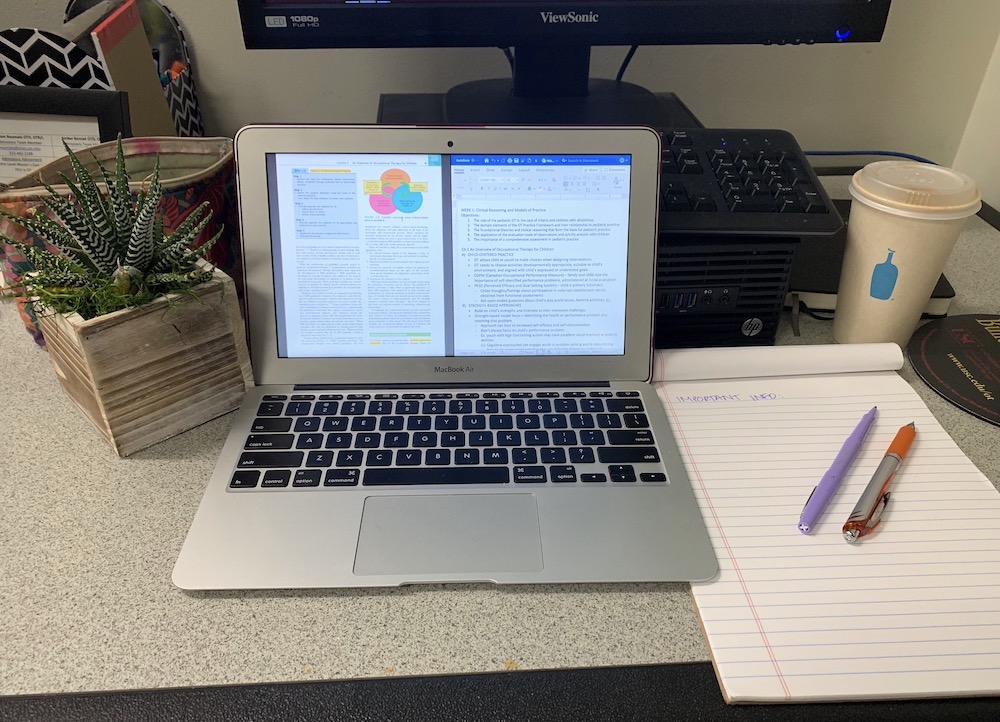
5. Ask for help
My go to tip! I see myself as a lifelong learner, so being able to ask for help provides me with guidance and awareness to be an informed person. Even though I am a second year student, I still do my best to reach out to faculty, mentors, and peers for support to navigate school. Faculty at the Chan division truly want to see every student succeed, so I try my hardest to visit professors’ office hours if I have questions. Mentors help remind me of my mission with OT and remind me in moments of uncertainty that I am where I need to be. Peers hold me accountable to working hard in the classroom and help me find a balance between work and play.
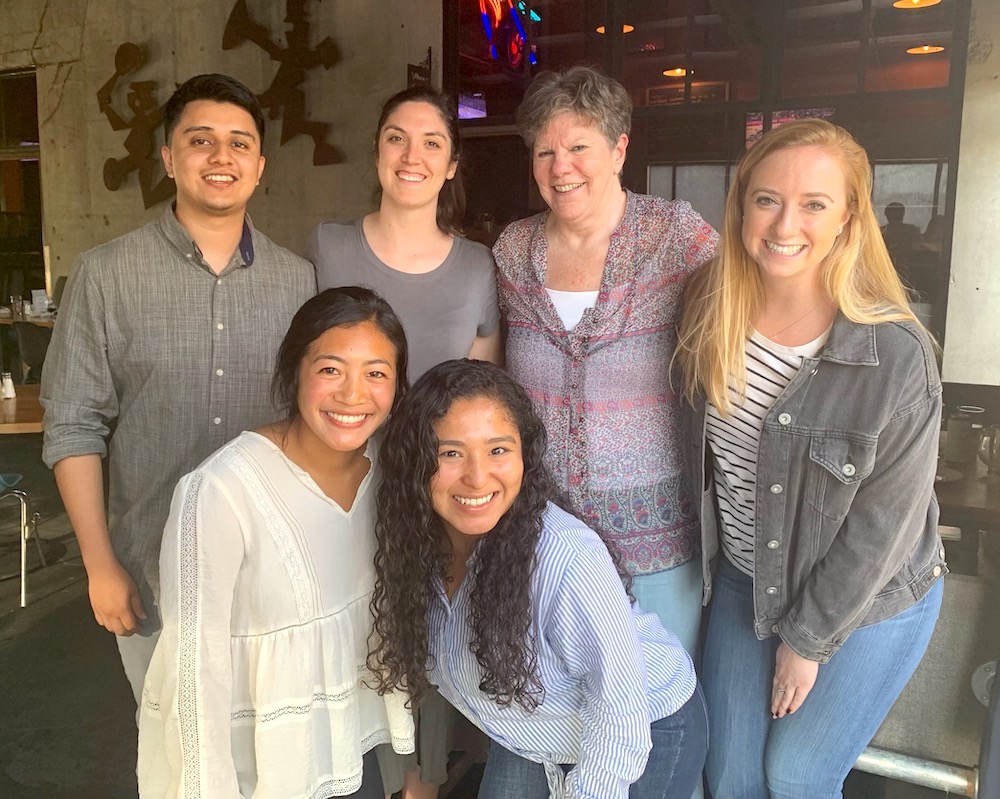
Whether you are a current or prospective student, feel free to reach out to the ambassador’s email to receive further support to navigate student life. We are here for you and want you to feel confident when you hit the ground running!
⋯






